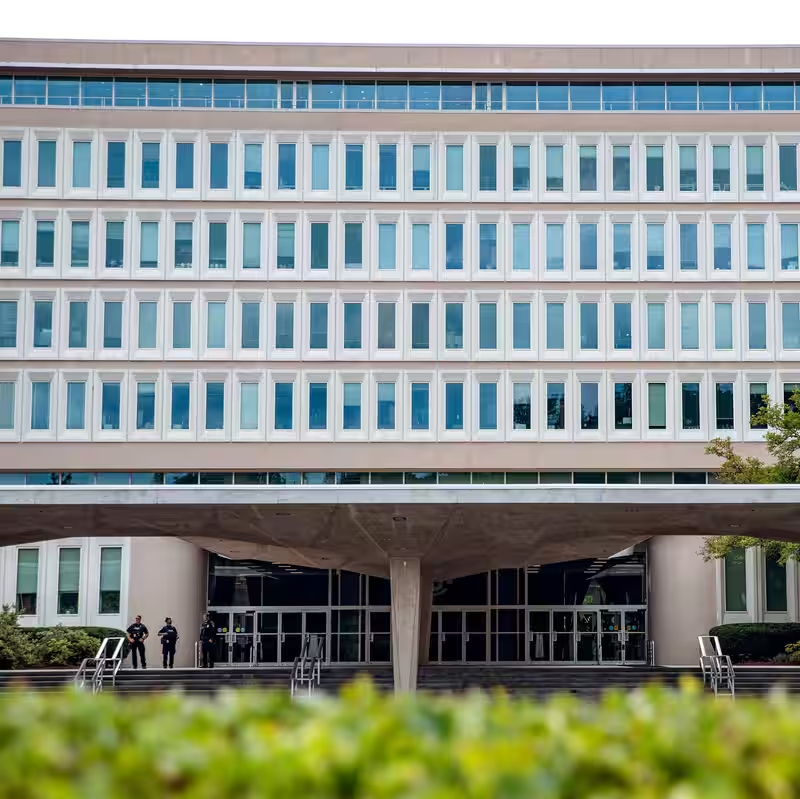Table of Contents
- An Unprecedented Power Shift at the CIA
- Who Is Michael Ellis—and Why Does It Matter?
- Legal Ethics Experts Warn of Conflict of Interest
- Has This Ever Happened Before?
- What This Means for CIA Oversight
- Sources
An Unprecedented Power Shift at the CIA
In a move that has stunned intelligence insiders and raised red flags among legal watchdogs, CIA Deputy Director Michael Ellis has quietly replaced the agency’s top legal official—with himself.
As of early October 2025, Ellis, a longtime Trump loyalist and former National Security Council lawyer, is now serving as both the second-in-command of the Central Intelligence Agency and its acting general counsel. The unusual consolidation of operational and legal authority in a single person has no known modern precedent at the CIA.
The agency has not publicly explained the reasoning behind the shake-up. The previous general counsel, whose identity has not been disclosed, reportedly left the post abruptly, with no formal announcement or transition plan.
Who Is Michael Ellis—and Why Does It Matter?
Michael Ellis is no stranger to controversy. Appointed deputy director in early 2025 by President Trump, Ellis previously served as the NSC’s senior director for intelligence programs. He gained notoriety in 2020 when he was briefly installed—over objections from career officials—as general counsel of the National Security Agency.
Known for his hardline views on surveillance and executive power, Ellis has long been viewed as a political operator rather than a career intelligence professional. His rise within the CIA reflects a broader trend in the second Trump administration: placing loyalists in key oversight roles traditionally held by nonpartisan experts.
Legal Ethics Experts Warn of Conflict of Interest
“This is a textbook conflict of interest,” said Professor Laura Jenkins, a legal ethics specialist at Georgetown Law. “The general counsel’s job is to provide independent legal advice—even when it’s inconvenient to leadership. But if the deputy director is reviewing his own decisions? That independence evaporates.”
Under normal circumstances, the CIA general counsel acts as a check on operational activities, ensuring compliance with U.S. law, executive orders, and international norms. That includes reviewing covert actions, surveillance programs, and interrogation protocols.
With Ellis now overseeing both sides of that equation, critics fear the agency could drift toward unchecked executive authority—particularly as the Trump administration pushes for expanded intelligence powers.
Has This Ever Happened Before?
Historical records show no instance in the CIA’s 77-year history where the deputy director also assumed the role of general counsel. Even during periods of political turbulence—such as the post-9/11 expansion of surveillance—the legal and operational chains of command remained separate.
Below is a comparison of recent CIA leadership structures:
| Administration | Deputy Director | General Counsel | Same Person? |
|---|---|---|---|
| Biden (2021–2025) | David Cohen | Robert Eatinger | No |
| Trump (First Term) | John Ratcliffe | Jason Klitenic | No |
| Trump (Second Term, 2025) | Michael Ellis | Michael Ellis (acting) | Yes |
What This Means for CIA Oversight
Congressional intelligence committees have not yet commented publicly on the change. But Democratic lawmakers are expected to raise questions during upcoming oversight hearings.
“When the fox guards the henhouse, you don’t get security—you get silence,” said one senior Senate aide, speaking on condition of anonymity.
Meanwhile, morale inside Langley is reportedly tense. Career lawyers worry their advice will be sidelined, while operations officers question whether legal reviews will become mere rubber stamps.
For now, the White House has offered no clarification. But in an administration that prizes loyalty over institutional norms, this power consolidation may be less an anomaly—and more a signal.




